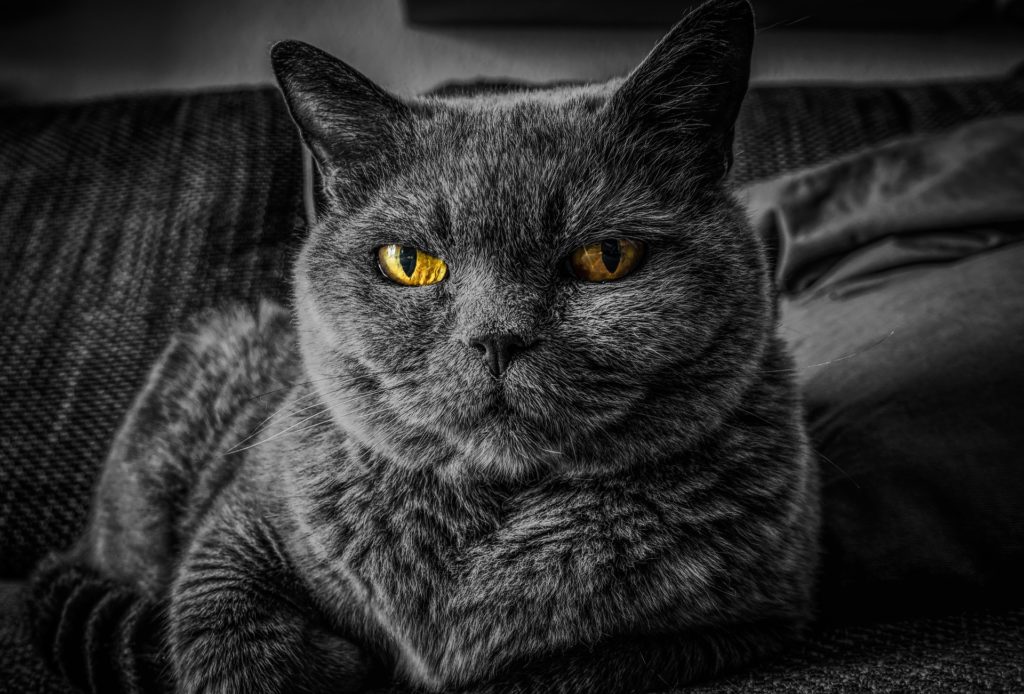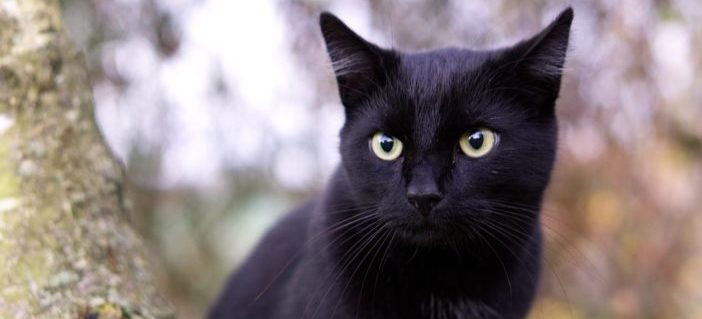Have you ever wondered why a black cat is seen as a sign of bad things to come? I’ve thought about it, too, but I didn’t mind it too much until my recent travels in Spain and Greece.
My first encounter with a black cat in my trip was when I visited the majestic Alhambra Palace in the city of Granada. Our tour guide, Conchita, told us some stories about the city, like that it was named after the pomegranate (the Spanish word for this fruit is granada) that was brought into the city by Muslims in the 7th century.
Complete with hand gestures and sound effects from her headset, Conchita was in full force explaining the history of the Alhambra Palace. Then right on cue came a black cat, which stole Conchita’s shining moment. “Oh, there’s a black cat.” And that’s how the royal history ended abruptly.

The Alhambra. It’s truly grand and there’s so much to see in this World Heritage Site.
Then the conversation switched to Conchita’s experience with black cats. She said that in their culture, it’s believed that black cats are harbingers of bad luck, but she tries to circumvent that by believing otherwise. And true to her word, it seemed that the trespassing black cat made our guide more zealous in revealing more of the history of the palace, making our trip truly pleasant and enjoyable.
A week after, I went to Athens and one of the things I wanted to do was to see the sunset from the top of Lycabettus Hill, the highest peak in the city. There, you’ll get a grand view of the Acropolis and the whole of Athens and its port, Piraeus. But because I saw a black cat the day before hiking up the hill, I thought something bad would happen. And yes, something (not too) bad did happen.
I spent most of my day in the National Archaeological Museum of Athens, where I saw the famed Golden Mask of Agamemnon and other important finds in ancient Greek history. After that, I was lost and didn’t know what to do, so I just rejigged my plans and decided to hike up the hill (around 2pm). It was sunny at the bottom of the hill but in around four hours of combined walking and hiking, the sky turned gray and the rain bands of an incoming storm blocked the otherwise fiery Athens sunset. Then it rained so hard that it soaked the tourists on the hill. Did I mention we were wearing summer outfits?

A panoramic view of west Athens. The Acropolis (slightly left of the metal pole on the right side) is covered with a huge cloud from an incoming rainstorm.
As the rainstorm was dissipating, I started my descent but to my surprise, a beautiful orange-violet sky appeared! That exasperated me to the point that I frowned on the way back to my hotel. Then that face of mine might have attracted so much bad luck that another black cat graciously walked in front of me, warning that another untoward thing would happen.
On the day that I was to travel to Rome from Athens, I lost my power banks and some grooming stuff at a subway stop. But here’s the deal: I saw the thief – a young-looking, semi-bearded man. What happened was he accidentally dropped my hair wax, which was placed together with my power banks in the front pouch of my bag. I didn’t panic but instead stopped and looked at my bag. I got relieved that the thief didn’t steal my laptop, tablet, or even my precious passport wallet, because I placed two big cans of Lay’s (which were full of grapes) on top of them.
When I told this story to my friends, they asked me why didn’t I report the thief to the guards. I told them I might run late for my flight, and the hassle wasn’t worth the lost items (good thing there’s Miniso!)
Anyway, going back to the curse of the black cat – so why then these felines are considered unlucky? There are so many myths associating these animals with natural phenomena, witchcraft, evil omens, and even Satan (because one pope in the Middle Ages hated cats so much)!

Meow! Though black cats sometimes look sinister, I’m sure they’re innocent of any bad (or good) things happening to someone.
On one of my trips in Greece, our guide, who was so knowledgeable about Greek mythology, explained that the reason why myths (and to some extent, urban legends) exist is that people want to satisfy their need to understand what’s happening around them. For example, we know that in ancient times, deities and gods of whatsoever-thing-your-senses-can-perceive flourished because our ancestors didn’t know why these things existed in the first place. They wanted something to explain a natural phenomenon. In essence, they built an arbitrary system of explanations and passed them on as beautifully crafted stories or poems. But as our ancestors came to understand natural phenomenon through logic and science, these myths were disproved and became considered as classic stories meant to scare people, or even for bedtime. Some of these have survived their times, and continue to fascinate many people.
Going back to the black cat experiences, I forgot to mention that I didn’t let the sneaky felines win. Good thing I had an extra power bank and power cord, which helped me for the remainder of my Rome trip. And in the other incident – the rainstorm in Athens – I went to the top of Lycabettus Hill the following day – but that time, I was more prepared. And look at how beautiful Athens was at sunset!

Athens at sunset. On the center-left side is the Acropolis…

…and the Acropolis, fully illuminated. I wish I had a more powerful camera because the night cityscape in Athens is just awesome!
Photos: Andy Penafuerte III; Desinger-Obst, Walkerssk, via Pixabay




